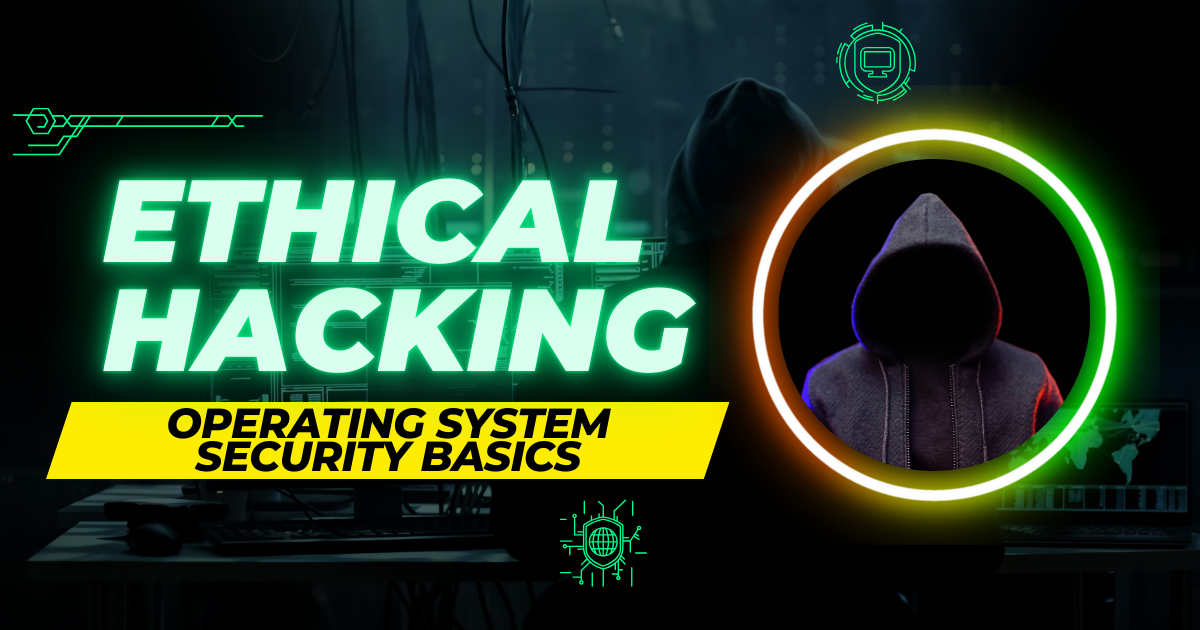A Guide to Operating System Security Basics
 Devyush Raturi
Devyush Raturi
The operating system (OS) is the heart of any computer system, managing hardware and software resources. Its security is paramount, as vulnerabilities in the OS can compromise the entire system and any applications running on it. Ethical hackers must have a deep understanding of OS security to effectively assess and protect systems. This article will explore the fundamental concepts of OS security, highlighting key areas of concern and best practices.
The OS as a Security Foundation
The OS acts as a crucial layer of defense, controlling access to resources and enforcing security policies. A secure OS is essential for protecting data, preventing unauthorized access, and maintaining system integrity. Conversely, a vulnerable OS can be exploited by attackers to gain control of the system, steal data, or launch further attacks.
Key Security Concepts
User Management: Proper user management is crucial for controlling access to the OS. This includes creating strong passwords, assigning appropriate permissions, and disabling unnecessary accounts.
Access Control: Access control mechanisms determine who can access what resources. This includes file permissions, access control lists (ACLs), and role-based access control (RBAC).
Patch Management: Keeping the OS up to date with the latest security patches is essential for mitigating known vulnerabilities.
Firewall Protection: Firewalls control network traffic, blocking unauthorized access and preventing malicious connections.
Intrusion Detection/Prevention Systems (IDS/IPS): IDS/IPS monitors network and system activity for suspicious behavior and attempts to block malicious activity.
Kernel Security: The kernel is the core of the OS. Protecting the kernel from vulnerabilities is crucial for overall system security.
Memory Protection: Memory protection mechanisms prevent applications from accessing memory they are not authorized to use, mitigating buffer overflow and other memory-related attacks.
File System Security: Securing the file system is essential for protecting data from unauthorized access and modification. This includes file encryption, access controls, and integrity checks.
Logging and Auditing: Logging and auditing system activity provides a record of events, which can be used to detect suspicious behavior and investigate security incidents.
Common OS Vulnerabilities
Buffer Overflows: Occurs when a program writes more data to a buffer than it can hold, potentially overwriting adjacent memory and executing arbitrary code.
Privilege Escalation: Occurs when an attacker gains higher-level privileges than they are authorized to have.
Rootkits: Malware that hides its presence and provides attackers with persistent access to the system.
Unpatched Software: Outdated OS components and applications can contain known vulnerabilities that attackers can exploit.
Weak Passwords: Easily guessed passwords can allow attackers to gain unauthorized access to user accounts.
Misconfigurations: Improper OS settings can expose systems to attack.
Security Best Practices
Use Strong Passwords: Implement strong password policies and encourage users to use unique, complex passwords.
Enable Multi-Factor Authentication (MFA): Add an extra layer of security by requiring users to provide multiple forms of authentication.
Keep Software Updated: Regularly patch the OS and applications with the latest security updates.
Implement Firewalls: Use firewalls to control network traffic and block unauthorized access.
Use Antivirus and Anti-Malware Software: Protect systems from malware infections.
Enable Logging and Auditing: Monitor system activity for suspicious behavior.
Implement Access Controls: Use file permissions and ACLs to restrict access to sensitive resources.
Harden the OS: Follow secure configuration guidelines to minimize the attack surface.
Regularly Back Up Data: Back up critical data to prevent data loss in case of a security incident.
Educate Users: Train users on security best practices to prevent social engineering attacks and other threats.
The Role of Ethical Hackers
Ethical hackers play a crucial role in securing operating systems by:
Conducting Penetration Tests: Simulating real-world attacks to identify vulnerabilities.
Performing Vulnerability Assessments: Identifying and analyzing potential weaknesses.
Providing Remediation Recommendations: Advising system administrators on how to fix identified vulnerabilities.
Performing Security Audits: Reviewing security policies and procedures.
Conclusion
Operating system security is a critical aspect of cybersecurity. By understanding the fundamental concepts and implementing effective security measures, organizations can protect their systems from unauthorized access and cyberattacks. Ethical hackers play a vital role in this process, helping to identify and mitigate vulnerabilities before malicious actors can exploit them. Continuous vigilance and proactive security measures are essential for maintaining a secure operating system environment.
Subscribe to my newsletter
Read articles from Devyush Raturi directly inside your inbox. Subscribe to the newsletter, and don't miss out.
Written by
